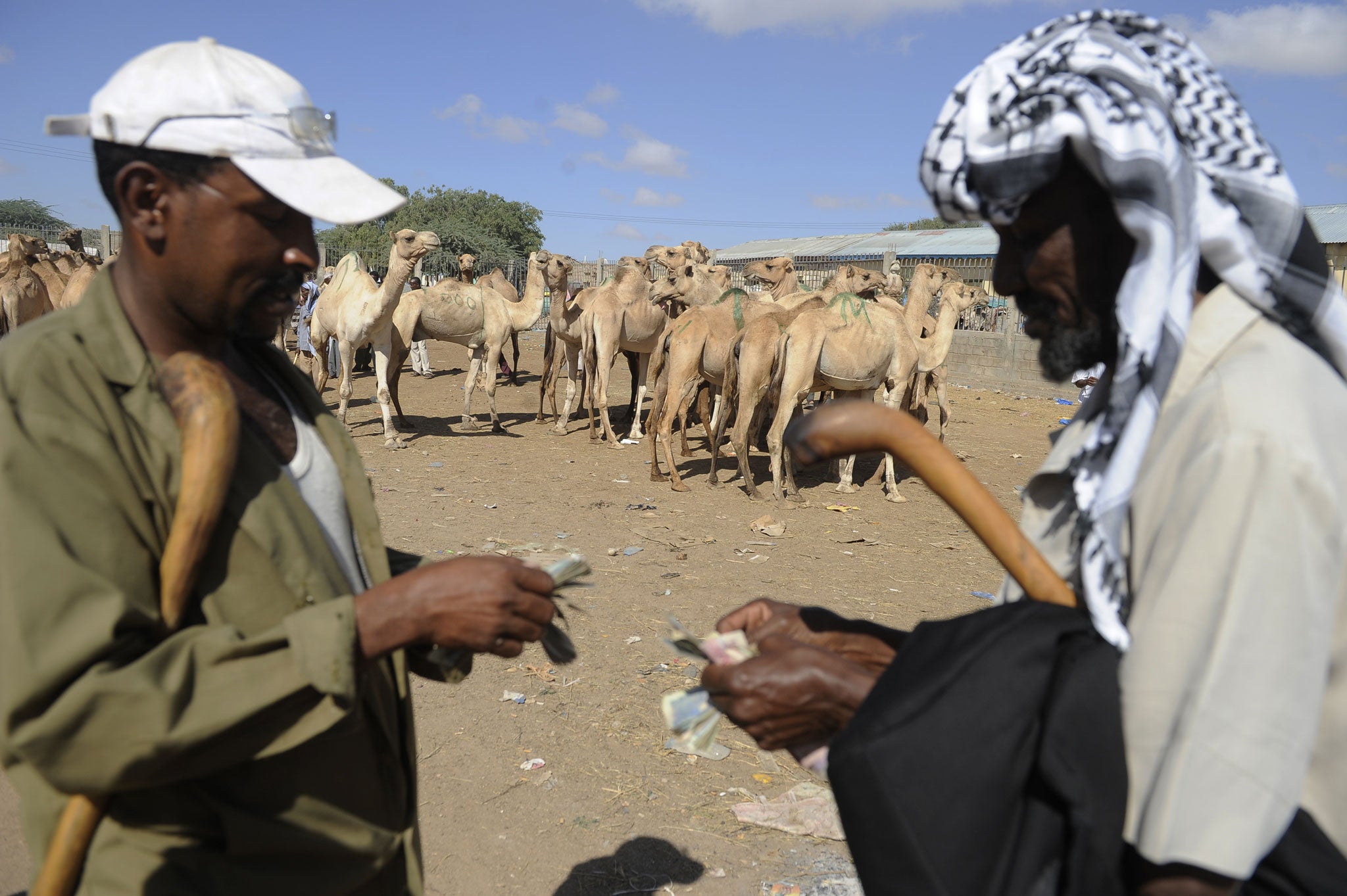Somali remittances: It's about justice, not charity
If Barclays cut this service both Somalis and the Somali state will suffer

Your support helps us to tell the story
From reproductive rights to climate change to Big Tech, The Independent is on the ground when the story is developing. Whether it's investigating the financials of Elon Musk's pro-Trump PAC or producing our latest documentary, 'The A Word', which shines a light on the American women fighting for reproductive rights, we know how important it is to parse out the facts from the messaging.
At such a critical moment in US history, we need reporters on the ground. Your donation allows us to keep sending journalists to speak to both sides of the story.
The Independent is trusted by Americans across the entire political spectrum. And unlike many other quality news outlets, we choose not to lock Americans out of our reporting and analysis with paywalls. We believe quality journalism should be available to everyone, paid for by those who can afford it.
Your support makes all the difference.To have a family member in need is distressing enough. When they are thousands of miles away it’s even worse. When a company removes the vital economic lifeline with which you can help them, it is a tragedy.
This is what’s happening to people in Somalia right now. Next week, Barclays Bank will stop a vital money transfer service which could hit up to 40 per cent of the Somali population. Barclays has said that it will be closing the accounts of hundreds of small Money Transfer Operators (MTOs) - meaning that there will be almost no opportunity for the Somali diaspora around the world to transfer money to families, friends and charities in the country.
The impact of this action will be profound and devastating. My wife’s 80 year old grandmother, Khadija, relies heavily on the money we send via MTOs. She is frail and vulnerable and lives in a remote part of Somalia. The money we send pays for the food, clothing, rent and the health care treatment she needs to survive.
We send my uncle $100 per month to pay for his care in a in a mental health centre in Hargaysa; $100 is for two orphans’ life essentials, $200 is for my cousin’s food, clothes and school fees. Like many Somalis living overseas, we also send money to charitable infrastructure projects such as building hospitals and roads. Without the ability to transfer money back home, it’s hard to see how they will be able to afford to live.
My Change.org petition calling on Barclays to reconsider their decision has reached 90,000 supporters. I am overwhelmed by the support but not surprised. The British people have an incredible history of helping those in need: when UK charities launched a fundraising appeal to help those affected by the famine in Somalia, UK citizens responded with millions of pounds of essential aid.
This time the people of Somalia are not asking for charity - we are asking for justice. Barclays has to realise its responsibility here. It is not enough to claim that they are concerned about the destination of remittances - they must look at how they can introduce the the checks and balances needed to keep the service active to a country where three million people live in poverty and 2.4 million need urgent humanitarian assistance. Others have made strong progress in ensuring that remittances are not channelled into terrorism and corruption.
British Olympic hero Mo Farah has this week made a last ditch plea to Barclays to think again about cutting this service which has provided not only the basics of life to countless Somalis, but the building blocks of growth in a country that desperately needs it. With a collapsed banking system and political instability in the country, the one billion dollars that Somalis around the world send to loved ones back home is not just important - it’s a matter of life and death. Tens of thousands of people agree with us and are contacting Barclays to ask them why they are removing this essential lifeline to a country in real need. I hope that Antony Jenkins, Barclays CEO, listens to their call.
Farhan Hassan is a freelance researcher and Executive Director of the Somali Heritage Academic Network.
Join our commenting forum
Join thought-provoking conversations, follow other Independent readers and see their replies
Comments